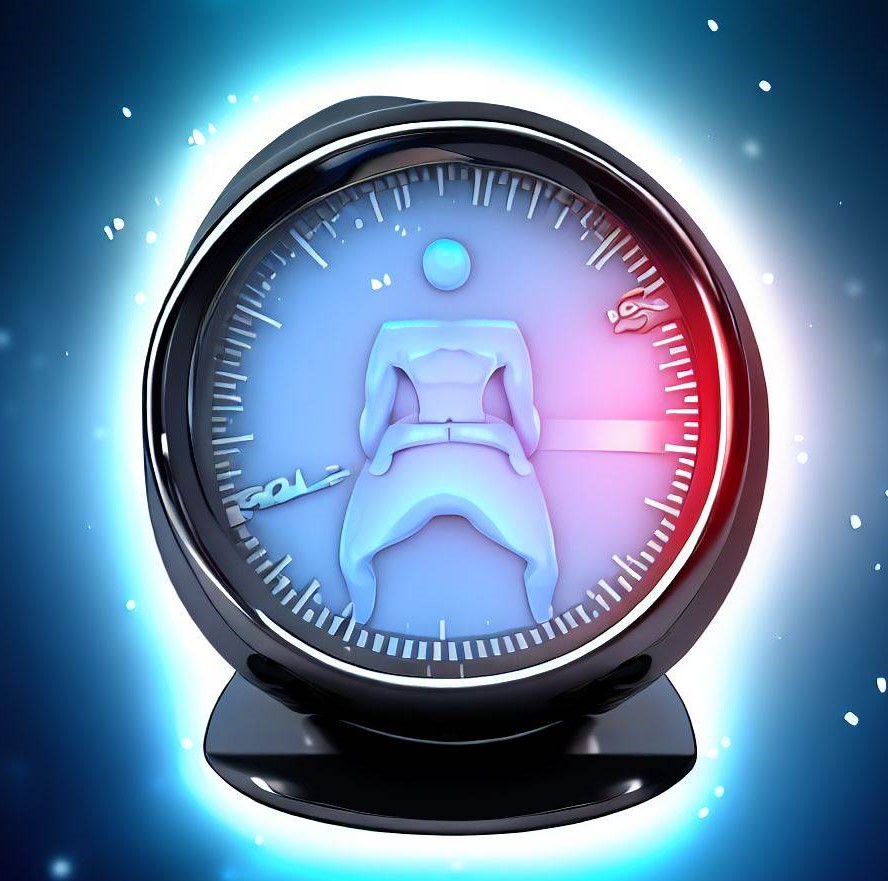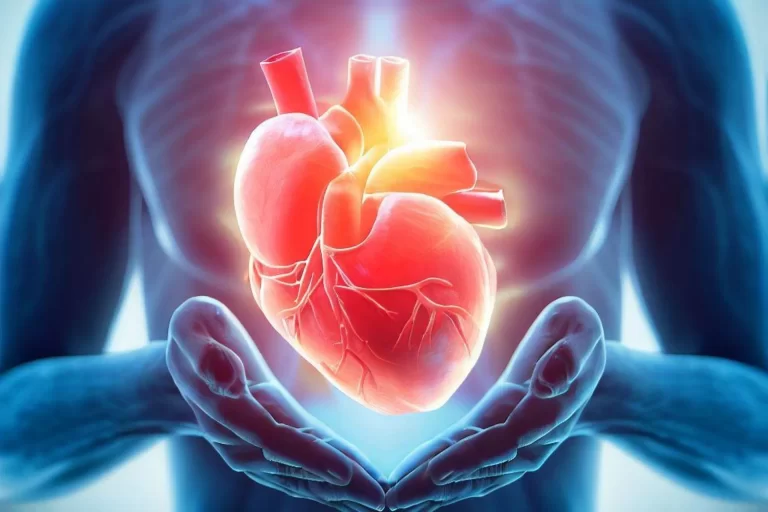Weight loss is a common goal but can often be challenging and daunting. Losing weight requires a combination of healthy lifestyle choices, including eating a balanced and healthy diet, incorporating regular physical activity, and making other positive lifestyle changes.
It is important to approach weight loss as a journey towards better health and well-being rather than a quick-fix solution. Sustainable steady weight loss takes time, dedication, and patience.
By making small, gradual changes to your lifestyle and adopting healthy habits, you can achieve weight loss goals and improve your overall health and quality of life.
This article will share the top 10 tips for losing weight and burning unhealthy fat:
1. Set realistic weight loss goals:
Setting realistic weight loss goals is essential in any weight loss journey. Here are some tips on how to set realistic weight loss goals:
Consult a healthcare professional: Before setting any weight loss goals, it is important to consult with a healthcare professional who can guide what a healthy and achievable goal for your specific situation is.

Use a BMI calculator: A Body Mass Index (BMI) calculator can help you determine a healthy weight range based on height and weight. This can give you an idea of your weight loss goals.
Aim for gradual weight loss: Losing weight gradually, at a rate of 1-2 pounds per week, is a safe and sustainable way to achieve your weight loss goals. The Centers for Disease Control and Prevention (CDC) suggests a 5-10% weight loss over six months.
Be specific: Instead of just saying, “I want to lose weight,” set a specific goal, such as “I want to lose 10 pounds in the next three months.”
Make it measurable: Besides being specific, make sure your goal is measurable so you can track your progress. For example, track your weight, body measurements, or how your clothes fit.
Consider your lifestyle: When setting your weight loss goal, consider your lifestyle and what changes you are willing and able to make. For example, if you don’t have time to exercise for an hour every day, aim for 30 minutes a day instead.
Celebrate small victories: Celebrate small mini-victories toward your ultimate goal. For example, if you reach a mini-goal of losing 5 pounds, treat yourself to a non-food reward such as a new workout outfit or a massage.
2. Focus on a balanced and healthy diet:
A balanced and healthy diet is crucial for long-term weight loss success and overall health.
A balanced and healthy diet should include a variety of nutrient-dense foods such as vegetables, whole grains, fruits, lean proteins, and healthy fats. This ensures you get all the essential nutrients your body needs.
Monitor portion sizes: Even healthy foods can contribute to weight gain if you overeat. Use measuring cups or a food scale to ensure you eat appropriate portions.
Limit processed and high-fat foods: Processed and high-fat foods should be limited as they are often high in calories, unhealthy fats, and sugar. Instead, focus on whole foods that are nutrient-rich and low in calories.
3. Incorporate regular physical activity:
Physical activity is essential to the weight loss journey and overall health. Physical activity burns calories, increases metabolism, and improves cardiovascular health. It might sound daunting, but it’s easier than you might think!
Here’s how to do it:

Make it your goal to participate in moderate-intensity aerobic exercise for at least 150 minutes weekly. This could include activities like cycling, walking, and swimming.
Alternatively, you can aim for 45-60 minutes of vigorous-intensity aerobic exercise per week, such as running or high-intensity interval training (HIIT).
If you need to get used to exercising regularly, start slowly and gradually increasing the intensity and duration of your workouts.
In addition to aerobic exercise, it’s important to include strength training exercises in your routine. These can help build muscle mass, which increases metabolism and burns more calories at rest. You can do strength training exercises such as weightlifting or bodyweight at home or the gym.
It’s also essential to incorporate physical activity into your daily routine. That doesn’t mean you have to spend many hours at the gym every day! Instead, try to be more active throughout the day by taking the stairs instead of the elevator, walking on your lunch break, or doing a quick workout before or after work.
4. Monitor calorie intake:
Monitoring calorie intake is an effective way to manage weight loss. When you consume way more calories than you burn daily, your body stores the excess fat.
Conversely, when you burn more calories than you consume, your body uses stored fat as energy, resulting in weight loss.
Here are some tips:
Determine your daily calorie needs: Use a calorie calculator to estimate how many calories you need to maintain your current weight based on age, gender, height, weight, and activity level.
Create a calorie deficit: An average healthy individual maintenance calories are around 2000. To lose body weight, create a calorie deficit by consuming fewer calories than you burn. A deficiency of 500-1000 calories daily can result in 1-2 pounds of weight loss per week.

Track your calorie intake: There are several ways to track your calorie intake, including using a food diary or an app that tracks your meals and snacks. Be sure to measure portions and read food labels to get an accurate estimate of the calories you’re consuming.
Eat nutrient-dense foods: Focus on foods high in nutrients and low in calories, such as fruits, vegetables, lean proteins, and whole grains. These foods can help you feel full and satisfied while consuming fewer calories.
5. Reduce sugar and processed food consumption:
Consuming extra sugar can lead to weight gain and health problems like diabetes, heart disease, and fatty liver disease.
Similarly, processed foods are often high in calories, sugar, and unhealthy fats, while lacking in essential nutrients.
This can contribute to weight gain and a range of health problems. So, reducing your sugar and processed food intake is essential to achieving your fat loss goals and living a healthier life.
Some tips are as follows:
- Read food labels: Look for products with low sugar and healthy ingredients, such as whole grains, fruits, and vegetables. Avoid products with high amounts of added sugar, sodium, and unhealthy fats.
- Cook at home: Cooking at home gives you more control over your ingredients and can help you avoid unhealthy additives, excess sugar, and salt.
- Choose whole foods: Focus on whole, unprocessed foods such as fresh fruits, vegetables, lean proteins, and healthy fats.
- Avoid sugary drinks: Soft, energy, and sports drinks are high in sugar and calories. Opt for water, unsweetened tea or coffee, or low-calorie beverages instead.
6. Increase fiber intake:
Fiber is a form of carbohydrate that is not absorbed by the body. Instead, it passes through the digestive system, helping to keep you feeling full, regulate your blood sugar levels, and promote healthy digestion.
Additionally, fiber-rich foods are typically low in calories, making them an excellent weight-loss choice.
First, aim to consume a variety of fruits and vegetables. These foods are naturally high in fiber, vitamins, minerals, and antioxidants. Try to include a serving of fruits or vegetables with each meal and snack.
Secondly, choose whole grains over refined grains. Real grains food, like brown rice, contains more fiber than its refined counterparts. Other fiber-rich foods include beans, lentils, nuts, and seeds.
It’s important to know that you should increase your fiber intake gradually, as too much fiber too quickly can cause digestive discomfort. Also, drink plenty of water, as fiber absorbs water and can cause constipation if you are not adequately hydrated.
7. Stay hydrated:
Drinking water can help you lose excess weight by increasing feelings of stomach fullness and reducing calorie intake.
Research shows that drinking water before meals consumes fewer calories, leading to weight loss. Staying hydrated can boost your metabolism, helping you burn more calories throughout the day.
Furthermore, drinking water instead of sugary beverages like soda or juice can reduce your daily calorie intake and help prevent weight gain. These drinks are often high in calories and sugar, which can lead to weight gain if consumed in excess.

Note that drinking water alone is not a magical weight loss solution. A balanced diet and regular exercise are still essential for achieving a healthy body weight.
8. Getting enough sleep:
Getting enough sleep is an important component of a healthy lifestyle and can also play a role in weight loss.
Studies show that not getting enough sleep daily can disturb the hormones that regulate hunger and fullness, leading to increased appetite and overeating.
Additionally, being tired can make it harder to resist unhealthy food cravings and make it more challenging to stick to a healthy diet.
So, how much sleep is necessary? The National Sleep Foundation suggests that adults aim for 7-9 hours of sleep per night.
Of course, everyone’s sleep needs differ, so listening and understanding your body and getting the amount of sleep that works best for you is necessary.
9. Manage stress levels:
Although stress is a shared experience, it can adversely impact mental and physical well-being when it persists for extended periods or becomes too intense.
Chronic stress has been linked to weight gain and difficulty losing weight, as it can lead to overeating and unhealthy food choices. Therefore, managing stress levels is vital to a healthy lifestyle and can help with weight loss efforts.
Here are some tips for managing stress:
- Identify the sources of stress.
- Practice relaxation techniques.
- Exercise regularly.
- Get enough sleep.
- Connect with others.
If you have difficulty managing stress alone, seeking support from a mental health professional may be helpful. They can provide additional coping strategies and help you develop a personalized plan for managing stress.
10. Consider intermittent fasting:
Intermittent fasting (IF) is a popular weight loss strategy involving cycling between fasting and eating.
During fasting, no or limited calorie intake is allowed, while regular calorie intake is resumed during eating.
There are several different intermittent fasting methods, including the 16/8 method, alternate-day fasting, and the 5:2 method.
IF has been shown to have several potential benefits for weight loss, including reducing overall calorie intake, improving insulin sensitivity, and increasing the body’s ability to burn fat.
However, it is important to note that IF is not a one-size-fits-all approach and may not be suitable for everyone. Talking to a healthcare professional before starting an IF regimen is essential, especially if you have any underlying health conditions.
Seek professional guidance and support:
Professional guidance and support can be crucial to successful weight loss and a healthy lifestyle. A healthcare professional, such as a doctor, registered dietitian, or certified personal trainer, can provide personalized guidance to help you achieve weight loss goals.
Conclusion:
Weight loss is a complex process that requires a combination of healthy lifestyle choices. Eating a balanced and healthy diet, incorporating regular physical activity, monitoring calorie intake, reducing sugar and processed food consumption, increasing fiber intake, getting enough sleep, managing stress levels, seeking professional guidance and support, and considering intermittent fasting are some of the key strategies that can aid in healthy and sustainable weight loss.
By making these lifestyle changes and adopting them as a long-term habit, one can achieve weight loss goals and improve overall health and well-being.
Note: We do not provide any medical advice.
REFERENCES
1. Centers for Disease Control and Prevention. (2021). Losing Weight. https://www.cdc.gov/healthyweight/losing_weight/index.html [4-3-2023].
2. Mayo Clinic. (2021). The Mayo Clinic Diet: A weight-loss program for life. https://www.mayoclinic.org/healthy-lifestyle/weight-loss/in-depth/mayo-clinic-diet/art-20045460 [4-3-2023].
3. U.S. Department of Health and Human Services and U.S. Department of Agriculture. (2020). Dietary Guidelines for Americans, 2020-2025. 9th Edition. https://www.dietaryguidelines.gov/ [4-3-2023].
4. Harvard T.H. Chan School of Public Health. (2021). Healthy Eating Plate. https://www.hsph.harvard.edu/nutritionsource/healthy-eating-plate/ [4-3-2023].
5. American Heart Association. (2021). Healthy Eating. Retrieved from https://www.heart.org/en/healthy-living/healthy-eating [4-3-2023].
6. Ramage, S., Farmer, A., Eccles, K. A., & McCargar, L. (2014). Healthy strategies for successful weight loss and weight maintenance: a systematic review. Applied physiology, nutrition, and metabolism = Physiologie appliquee, nutrition et metabolisme, 39(1), 1–20. https://doi.org/10.1139/apnm-2013-0026. [4-3-2023].
7. Pesta, D. H., & Samuel, V. T. (2014). A high-protein diet for reducing body fat: mechanisms and possible caveats. Nutrition & metabolism, 11(1), 53. https://doi.org/10.1186/1743-7075-11-53. [4-3-2023].
8. Westerterp K. R. (2019). Exercise for weight loss. The American journal of clinical nutrition, 110(3), 540–541. https://doi.org/10.1093/ajcn/nqz070 [4-3-2023].
9. World Health Organization. (2016). Questions and answers on reducing sugar consumption to prevent and control noncommunicable diseases. https://www.emro.who.int/noncommunicable-diseases/publications/questions-and-answers-on-reducing-sugar-consumption-to-prevent-and-control-noncommunicable-diseases.html [4-3-2023].
10. Harvard Health Publishing. (2015, February 17). Making one change — getting more fiber — can help with weight loss. Harvard Health Blog. https://www.health.harvard.edu/blog/making-one-change-getting-fiber-can-help-weight-loss-201502177721 [4-3-2023].
11. Johns Hopkins University. (2020, January 15). Why drinking more water should be your wellness resolution for the new year. Hub at Work. https://hub.jhu.edu/at-work/2020/01/15/focus-on-wellness-drinking-more-water/ [4-3-2023].
12. National Sleep Foundation. (n.d.). Weight Loss and Sleep. SleepFoundation.org. https://www.sleepfoundation.org/physical-health/weight-loss-and-sleep [4-3-2023].
13. Harvard T.H. Chan School of Public Health. (2021, January 5). Intermittent Fasting. The Nutrition Source. https://www.hsph.harvard.edu/nutritionsource/healthy-weight/diet-reviews/intermittent-fasting/ [4-3-2023].
14. Xenaki, N., Bacopoulou, F., Kokkinos, A., Nicolaides, N. C., Chrousos, G. P., & Darviri, C. (2018). Impact of a stress management program on weight loss, mental health and lifestyle in adults with obesity: a randomized controlled trial. Journal of molecular biochemistry, 7(2), 78–84. [4-3-2023].
15. University of Utah Health. (n.d.). Stress and Weight Loss. Healthcare.utah.edu. https://healthcare.utah.edu/weight-management/stress-weight-loss/ [4-3-2023].







